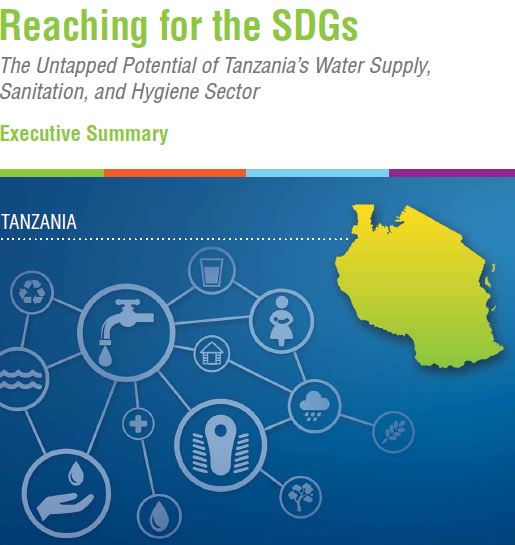Reaching for the SDGs The Untapped Potential of Tanzania’s Water Supply, Sanitation, and Hygiene Sector-Exsum
Tanzania is the fourth most populous country in Sub-Saharan Africa, home to more than 55.6 million people. The country’s macroeconomic outlook is positive, with GDP growth of 6.5 percent per annum over the past fifteen years and significant reductions in poverty since 2007. Despite this progress, 40 percent of its population, some 21 million people, lack access to improved drinking water and more than double that figure, almost 43 million people, lack access to improved sanitation. The country recently fell a long way short of reaching its Millennium Development Goal (MDG) targets for water and sanitation, which was “to halve the proportion of people without improved drinking water and sanitation in 1990 by 2015.” Now, the new Sustainable Development Goals (SDG) aim to reach universal access to safe water and sanitation by 2030, an aspiration that appears even more daunting. “Reaching for the SDGs: The Untapped Potential of Water Supply, Sanitation, and Hygiene in Tanzania” is a summary report of the findings of the Tanzania WASH Poverty Diagnostic (TWPD) study led by the World Bank’s Water and Poverty Global Practices team. TWPD identifies the nature of challenges of water supply, sanitation, and hygiene (WASH) access in Tanzania and proposes ways to prioritize those challenges in moving forward to meet the new SDGs. It concludes that WASH must improve not only for the sake of the sector itself, but also because of the broader knock-on effects that it has on crucial dimensions of human development and poverty reduction.
